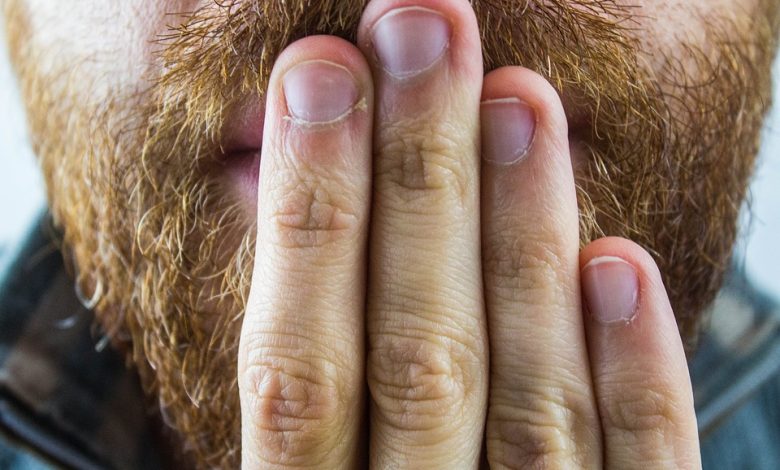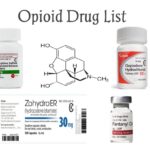Drugs That Cause Hiccups

Hiccups, also known as singultus, are involuntary contractions of the diaphragm muscle that cause the sudden closure of the vocal cords. This produces the characteristic “hic” sound that is associated with hiccups. Hiccups can occur for a variety of reasons, including:
1. Eating too quickly or too much: When you eat too quickly or too much, you can swallow air that can irritate the diaphragm and cause hiccups.
2. Drinking carbonated beverages: Drinking carbonated beverages can also cause hiccups by filling the stomach with gas that irritates the diaphragm.
3. Drinking alcohol: Alcohol can irritate the nerves that control the diaphragm and cause hiccups.
4. Emotional stress or excitement: Strong emotions can stimulate the hiccup reflex and cause hiccups.
5. Certain medications: Some medications can cause hiccups as a side effect, including drugs used to treat anxiety, depression, and acid reflux.
6. Medical conditions: Certain medical conditions can cause hiccups, including pneumonia, brain tumors, and kidney failure.
Most cases of hiccups are not serious and go away on their own within a few minutes or hours. However, persistent hiccups that last for more than 48 hours or interfere with sleep, eating, or breathing may require medical attention. In this article, we shall be focusing on medication-induced hiccups and the drugs that trigger them.
What is a medication-induced hiccup?
Medication-induced hiccups are a rare side effects of certain medications that can cause a person to experience hiccups. Hiccups occur when the diaphragm muscle contracts involuntarily, causing a sudden intake of air into the lungs, which is then interrupted by the sudden closure of the vocal cords, creating the “hic” sound. While hiccups are usually not a cause for concern, persistent or severe hiccups can be a sign of a more serious underlying condition.
Certain medications have been associated with causing hiccups as a side effect. The exact mechanism behind how medications can cause hiccups is not well understood, but it is thought to be related to the way that the medication affects the central nervous system or the muscles involved in breathing. It is important to note that medication-induced hiccups are relatively rare and are usually temporary, resolving once the medication is discontinued or the dose is adjusted.
The incidence of medication-induced hiccups can vary depending on the specific medication and the individual taking the medication. Some people may be more prone to experiencing hiccups as a side effect of certain medications due to their individual physiology or medical history.
Drugs That Cause Hiccups and Why They Do
Hiccups can be caused by a variety of factors, including medications. Some medications have been associated with causing hiccups as a side effect. The exact mechanism behind how medications can cause hiccups is not well understood, but it is thought to be related to the way that the medication affects the central nervous system or the muscles involved in breathing. Some medications that have been linked to causing hiccups as a side effect include:
1. Corticosteroids: Corticosteroids are medications that are commonly used to treat inflammatory conditions. Corticosteroids cause hiccups by affecting the function of the muscles involved in breathing and the nerves that control these muscles, leading to hiccups.
Corticosteroids work by reducing inflammation in the body and suppressing the immune system. They can have both beneficial and harmful effects on various systems in the body. One of the potential side effects of corticosteroids is muscle weakness, which can affect the muscles involved in breathing, including the diaphragm muscle. When the diaphragm muscle contracts involuntarily, this can cause the sudden intake of air into the lungs, which is then interrupted by the sudden closure of the vocal cords, resulting in the “hic” sound of a hiccup.
In addition, corticosteroids can affect the nerves that control the muscles involved in breathing. The phrenic nerve, which controls the diaphragm muscle, is thought to be stimulated by corticosteroids, leading to involuntary contractions and hiccups.
Here are some examples of corticosteroids that can cause hiccups:
Prednisone, Dexamethasone, Triamcinolone, Methylprednisolone, Fluticasone, Beclomethasone, Budesonide, Hydrocortisone
2. Benzodiazepines: Benzodiazepines are medications that are commonly used to treat anxiety, insomnia, and seizures. It is thought that benzodiazepines can affect the central nervous system, which can lead to hiccups. Benzodiazepines are a type of medication that are commonly used to treat anxiety, insomnia, and seizures.
Benzodiazepines work by enhancing the effects of a neurotransmitter in the brain called gamma-aminobutyric acid (GABA). GABA is an inhibitory neurotransmitter that helps to reduce the activity of neurons in the brain, leading to feelings of relaxation and calmness. It is thought that benzodiazepines can also affect the neurons in the brain that control breathing, leading to changes in breathing patterns and possibly causing hiccups.
Another possible mechanism by which benzodiazepines can cause hiccups is through their effects on the digestive system. Benzodiazepines can cause relaxation of the lower esophageal sphincter, which is the muscle that controls the flow of food and stomach acid into the stomach. This can lead to the reflux of stomach contents into the esophagus, which can irritate the diaphragm muscle and trigger hiccups.
Here are some examples of benzodiazepines that can cause hiccups: Alprazolam (Xanax), Clonazepam (Klonopin), Diazepam (Valium), Lorazepam (Ativan), Midazolam (Versed). Triazolam (Halcion)
3. Opioids: Opioids are medications that are commonly used to treat pain. Opioids cause hiccups by affecting the central nervous system and the gastrointestinal system, leading to hiccups.
Opioids work by binding to specific receptors in the brain and spinal cord, called mu-opioid receptors, which are involved in the regulation of pain perception. Opioids can also affect other parts of the central nervous system, including the area of the brainstem that controls breathing, which may contribute to the development of hiccups.
Another possible mechanism by which opioids can cause hiccups is through their effects on the gastrointestinal system. Opioids can slow down the movement of food through the digestive tract and can cause the relaxation of the lower esophageal sphincter, which can lead to the reflux of stomach contents into the esophagus and irritation of the diaphragm muscle, triggering hiccups. Examples of opioids that can cause hiccups include codeine, morphine, fentanyl, oxycodone, and hydrocodone.
4. Barbiturates: Barbiturates are a type of medication that were commonly used in the past to treat anxiety, insomnia, and seizure disorders, but their use has declined due to their high risk of addiction and overdose. Barbiturates can cause hiccups through several mechanisms.
Firstly, barbiturates can depress the central nervous system, which can lead to changes in breathing patterns and the regulation of the diaphragm muscle. The diaphragm muscle is a dome-shaped muscle that separates the chest cavity from the abdominal cavity and plays a crucial role in breathing. Any disruption in its normal function can lead to hiccups.
Secondly, barbiturates can affect the gastrointestinal system, leading to hiccups. Barbiturates can cause relaxation of the lower esophageal sphincter, which is the muscle that controls the flow of food and stomach acid into the stomach. This can lead to the reflux of stomach contents into the esophagus, which can irritate the diaphragm muscle and trigger hiccups. Examples of barbiturates that can cause hiccups include phenobarbital, pentobarbital, and secobarbital.
5. Chemotherapy drugs: Chemotherapy drugs are medications used to treat cancer by killing rapidly dividing cancer cells. While chemotherapy drugs are effective in treating cancer, they can also cause a range of side effects, including hiccups.
The exact mechanism by which chemotherapy drugs cause hiccups is not well understood, but it is thought to be related to the effect of the drugs on the nerves that control the diaphragm muscle. The diaphragm muscle is the primary muscle responsible for breathing, and any disturbance in its normal function can cause hiccups.
Chemotherapy drugs can also cause inflammation and irritation of the esophagus and stomach, which can trigger hiccups. In addition, some chemotherapy drugs can cause dehydration and electrolyte imbalances, which can lead to muscle spasms, including hiccups. Certain chemotherapy drugs, such as cisplatin and cyclophosphamide, can cause hiccups as a side effect.
6. Other medications: Other medications that have been linked to causing hiccups as a side effect include medications used to treat Parkinson’s disease, hypertension, and acid reflux.
It is not entirely clear why these medications can cause hiccups, but it is thought to be related to the way that they affect the muscles involved in breathing or the central nervous system. Some medications may stimulate the phrenic nerve, which is responsible for controlling the diaphragm muscle, leading to involuntary contractions and hiccups. Other medications may alter the levels of neurotransmitters in the brain, which can affect the regulation of breathing and lead to hiccups.
It is important to note that medication-induced hiccups are relatively rare and usually resolve once the medication is discontinued or the dose is adjusted. If you are experiencing persistent or severe hiccups or have any concerns about a medication you are taking, it is important to consult a healthcare professional.





